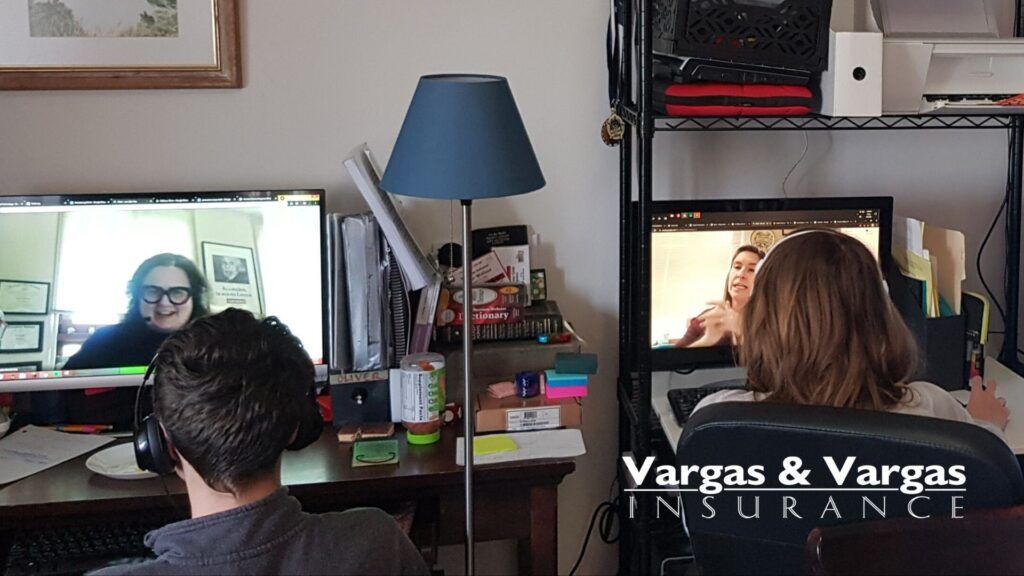What these uncertain times have taught us | Blog | Vargas & Vargas Insurance

If there’s anything these uncertain times have taught us, it’s when massive changes come our way, we can adapt.
Confronting the global COVID-19 health crisis has brought many changes to our daily routines– including how we do our jobs. For many of us, there’s no more leaving home to go to work. If you’re now managing your business from home, these three tips can help you balance your personal and professional life.
1. Keep your routine
When work and home life blend, it can be a challenge to keep track of time and easy to get distracted. Create a pattern to your day.
For example, when you wake up:
- Take a shower as you usually would
- Make time for breakfast or coffee.
- Exercise, meditate, or spend some time in your bliss station.
- Pick an activity that helps you start your day the way you want to – even if it’s just for a few minutes
If you’re not working a set schedule remotely, try creating your own scheduled work-from-home hours. Taking time each day to “show up” for work can give you a greater sense of control in unsettled times.
2. Be creative
For some, this might be a time to explore new ways to grow your business, grow your skill sets, or launch a new idea. If you’re in that creative headspace
- List ideas on paper to research online.
- Reach out to experts or people in your network by phone or email.
- Keep up with your customer and prospect base on social media or via email
- Write a blog, email or other communication telling your customers how you’re handling the crisis
- Brainstorm ideas with other professionals on ways to keep your business essential in this new normal.
- Start or join a virtual coffee of cocktail hour to see how and what others are doing work from home.
3. Relax and recharge
Find ways to relax that separate work from the quality time at home.
Play games with your kids, make a meal with a housemate, or just take time out to read quietly on the couch. You can also stream exercise routines online, right in your living room, and build strength with weights if you have them on hand – or even soup cans.
Finding time to relax or exercise across each work-from-home day can be essential to creating distance from your professional tasks and having the energy to get your work done.
More than anything, find the pace and structure to the day that works best for you and your business to work from home like a pro. Set a time that your workday ends, if you don’t your work with take over your life.
4. Check-in with your clients
Make sure that your clients know you are thinking of them right now and you’re available to answer any of their questions about your business as it relates to the coronavirus. A lot of your clients might be experiencing anxiety about what comes next, and as a trusted expert in your field, you are well-positioned to guide them through challenges and changes.
Take the time to call or text each of your clients to continue building long-term trust. Send a message to cvargas@vargasinsurance.com
and I will share with you the message that has been working very well for us!
As always, Vargas & Vargas Insurance your local independent insurance agency is always ready and willing to help, you can reach our team at 617-298-0655.


